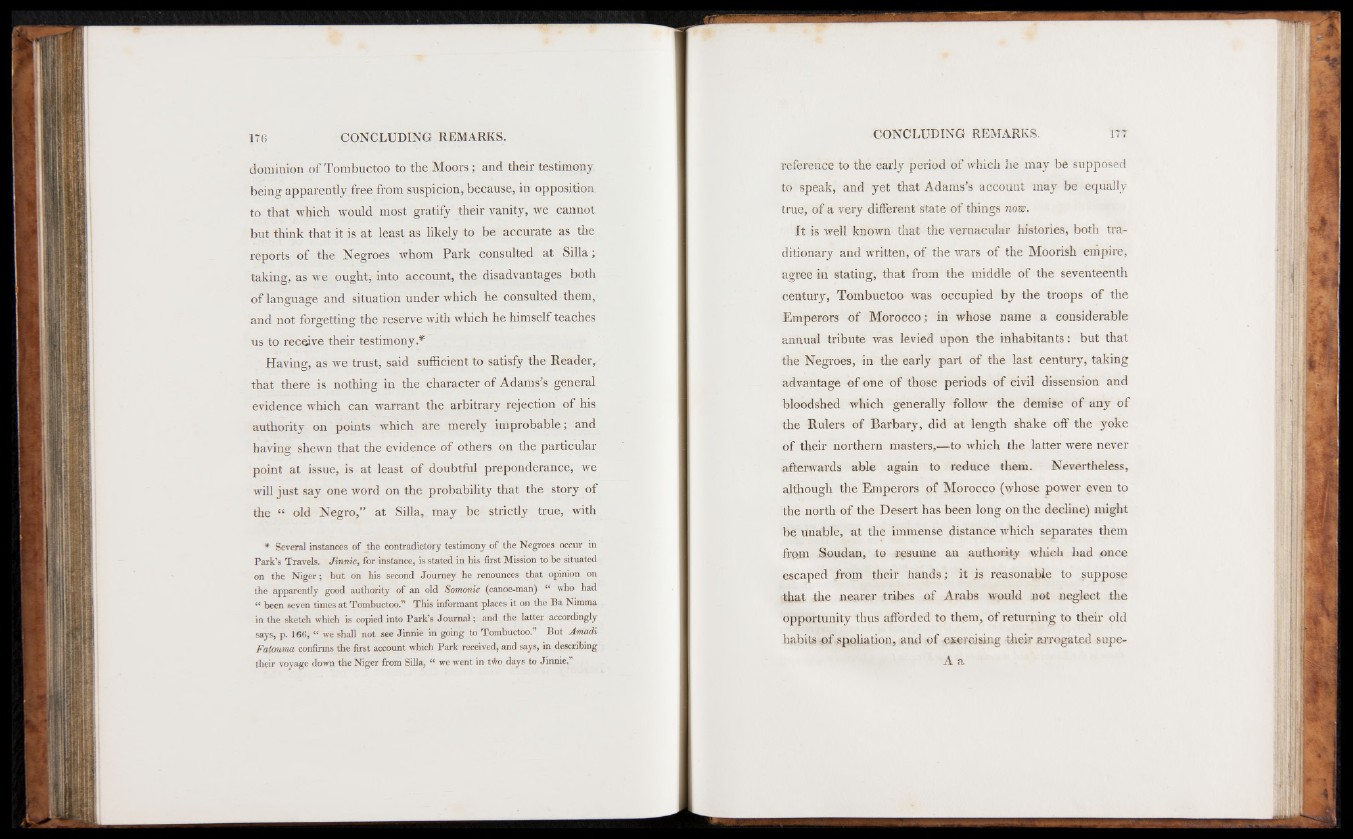
dominion of Tombuctoo to the Moorsj and their testimony
being apparently free from suspicion, because, in opposition,
to that which would most gratify their vanity, we cannot
but think that it is at least as likely to be accurate as the
reports of the Negroes whom Park consulted at Silla;
taking, as we ought, into account, the disadvantages both
of language and situation under which he consulted them,
and not forgetting the reserve with which he himself teaches
us to receive their testimony.*
Having, as we trust, said sufficient to satisfy the Readei>
that there is nothing in the character of Adams's general
evidence which can warrant the arbitrary rejection of his
authority on points which are merely improbable; and
having shewn that the evidence of others on the particular
point at issue, is at least of doubtful preponderance, we
will just say one word on the probability that the story of
the “ old Negro,” at Silla, may be strictly true, with
* Several instances of the contradictory testimony of the Negroes occur in
P a rt’s Travels. Jinnie, for instance, is stated in hia first Mission to be situated
on the Niger; but on his second Journey he renounces that opinion on
the apparently good authority of an old Somonie (canoe-man) “ who had
“ been seven times at Tombuctoo.” This informant places it on the Ba Nimma
in the sketch which is copied into Park’s Journal; and the latter accordingly
says, p. 166, “ we shall not see Jinnie in going to Tombuctoo.” But AmacU
Fulmarui confirms the first account which Park received, and says, in describing
their voyage down the Niger from Silla, “ we went in tvto days to Jinnie,”
reference to the early period of which he may be supposed
to speak, and yet that Adams’s account may be equally
true, of a very different state of things now.
It is well known that the vernacular histories, both traditionary
and written, of the wars of the Moorish empire,
agree in stating, that from the middle of the seventeenth
century, Tombuctoo was occupied by the troops of the
Emperors of Morocco; in whose name a considerable
annual tribute was levied upon the inhabitants: but that
the Negroes, in the early part of the last century, taking
advantage of one of those periods of civil dissension and
bloodshed which generally follow the demise of any of
the Rulers of Barbary, did at length shake off the yoke
of their northern masters,—to which the latter were never
afterwards able again to reduce them. Nevertheless,
although the Emperors of Morocco (whose power even to
the north of the Desert has been long on the decline) might
be unable, at the immense distance which separates them
from Soudan, to resume an authority which had once
escaped from their hands,- it is reasonable to suppose
that the nearer tribes of Arabs would not neglect the
opportunity thus afforded to them, of returning to their old
habits of spoliation, and of exercising their arrogated supe-
A a